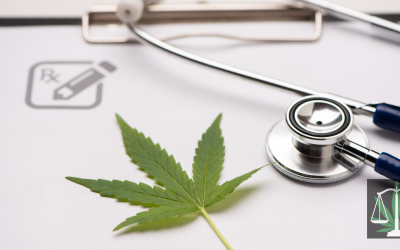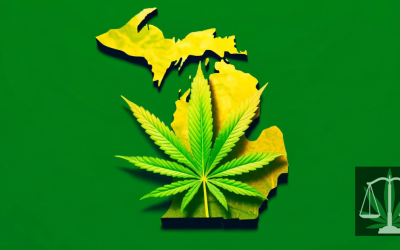Welcome to our comprehensive guide on hemp licensing, where we delve into the intricate details of obtaining a hemp license and navigating the regulatory landscape surrounding this burgeoning industry. At Cannabis Licensing Law, we understand the importance of staying informed and ensuring compliance with the ever-evolving legal requirements. In this guide, we will cover everything from the basics of hemp licensing to the essential steps involved in securing a license.
Understanding Hemp Licensing
Hemp licensing is the legal framework that governs the cultivation, production, and sale of industrial hemp, a versatile crop with numerous applications across various industries. Hemp, unlike its cousin marijuana, contains minimal levels of THC, the psychoactive compound responsible for the “high” effect. As a result, hemp is valued for its fibrous stalks, seeds, and flowers, which can be utilized in the production of textiles, food products, biofuels, and more.
The Benefits of Hemp Licensing
Obtaining a hemp license offers numerous benefits to individuals and businesses operating in the hemp industry. These include:
Legal Compliance: Hemp licensing ensures compliance with federal, state, and local regulations, providing peace of mind and minimizing the risk of legal complications.
Market Access: With a hemp license, businesses gain access to a growing market of consumers interested in hemp-derived products, such as CBD oils, hemp-based textiles, and hemp-infused foods.
Diversification and Sustainability: Hemp cultivation provides an opportunity for farmers to diversify their crops and contribute to a more sustainable agricultural system due to hemp’s low environmental impact and its ability to improve soil health.
Key Regulations and Legal Considerations
Before embarking on the journey of obtaining a hemp license, it is crucial to understand the key regulations and legal considerations governing the hemp industry. Familiarizing yourself with the following aspects will help streamline the licensing process:
Federal Laws: The passage of the Agriculture Improvement Act of 2018, also known as the Farm Bill, legalized hemp cultivation and removed it from the list of controlled substances. However, it is essential to comply with specific regulations outlined in the bill.
State and Local Laws: While federal law permits hemp cultivation, individual states may have their own requirements and restrictions. Familiarize yourself with state and local laws to ensure full compliance.
THC Content Limits: Hemp plants must contain less than 0.3% THC on a dry weight basis to be classified as legal industrial hemp. Regular testing is necessary to ensure compliance with these THC limits.
Licensing and Registration: Research the specific licensing and registration requirements set by your state’s agriculture department or regulatory body. These requirements may include background checks, fees, and documentation.
Steps to Obtain a Hemp License
Securing a hemp license involves several steps that vary depending on your location. While the exact process may differ, here is a general outline of the steps typically involved:
Research and Planning: Begin by conducting thorough research on the hemp industry, regulations, and licensing requirements specific to your state. Develop a comprehensive business plan, including cultivation, processing, and marketing strategies.
Business Entity Formation: Determine the appropriate business structure, such as a sole proprietorship, partnership, LLC, or corporation. Consult with legal and financial advisors to ensure you select the most suitable entity for your hemp business.
Secure Funding: Assess your financial needs and explore funding options. This may include self-funding, loans, grants, or partnerships. A solid financial foundation is essential for successfully obtaining and maintaining a hemp license.
Location and Facilities: Identify a suitable location for your hemp operation, considering factors such as soil quality, access to water, security measures, and proximity to processing facilities. Ensure your facilities meet all building and safety codes.
License Application Preparation: Gather the necessary documentation required for the license application. This typically includes personal identification, financial records, cultivation plans, security protocols, and any other information specified by your state’s licensing authority.
Submit the Application: Carefully review the application requirements and submit your completed application along with any applicable fees. Pay close attention to deadlines and ensure all information is accurate and up to date.
Background Checks and Inspections: Some licensing authorities may conduct background checks on applicants and perform inspections of the proposed cultivation site. Cooperate fully and provide any additional information or documentation as requested.
Approval and License Issuance: Once your application is approved, you will receive your hemp license. Review the terms and conditions of the license carefully and ensure compliance with all regulations.
Hemp License Application Process
The hemp license application process can vary by state, but it generally involves the following steps:
Determine Eligibility: Review the eligibility criteria outlined by your state’s agricultural department to ensure you meet the requirements for obtaining a hemp license.
Application Form: Obtain the official application form from the appropriate licensing authority. This form will require detailed information about your business, including the type of license you are seeking (e.g., cultivation, processing, distribution).
Documentation and Supporting Materials: Gather all required documentation and supporting materials as specified in the application form. This may include proof of land ownership or lease agreement, financial statements, business plans, security measures, and more.
Completing the Application: Fill out the application form accurately and completely. Double-check all information to ensure accuracy and attach the necessary supporting documents.
Application Fee: Pay the required application fee as specified by the licensing authority. Keep a record of the payment for future reference.
Submission: Submit the completed application along with the application fee to the designated licensing authority. Ensure you meet the submission deadline and follow any specific submission instructions provided.
Review and Processing: The licensing authority will review your application, conduct any necessary background checks, and assess the suitability of your proposed hemp operation. This process may take several weeks or months.
Approval and License Issuance: If your application is approved, you will receive your hemp license. Review the terms and conditions of the license carefully and ensure compliance with all regulations.
Compliance and Recordkeeping
Maintaining compliance with regulations is vital for the success of your hemp business. Here are key aspects to consider:
Recordkeeping: Establish a robust recordkeeping system to track all aspects of your hemp operation. This includes cultivation records, testing results, sales and distribution records, and compliance documentation. These records will be crucial for audits and inspections.
Testing and Analysis: Regularly test your hemp crops to ensure compliance with THC limits and to verify the cannabinoid profile. Use certified laboratories and maintain accurate records of testing results.
Product Tracking and Tracing: Implement a system to track your hemp and hemp-derived products from seed to sale. This ensures transparency and facilitates recall procedures if necessary.
Stay Informed: Continuously monitor and stay updated on changes in federal, state, and local regulations. Attend industry conferences, seminars, and webinars to stay informed about the latest developments in the hemp industry and regulatory landscape. Engage with industry associations and networks to connect with other professionals and share knowledge.
Compliance Audits: Conduct regular internal audits to assess your compliance with regulations. Identify any areas of improvement and take necessary corrective actions to address any non-compliance issues.
Employee Training: Provide comprehensive training to your employees on regulations, best practices, and safety protocols. Ensure that everyone involved in your hemp operation understands their roles and responsibilities in maintaining compliance.
Renewals and Updates: Stay vigilant about license renewal deadlines and submit the required documentation on time. Also, promptly inform the licensing authority of any changes in your business structure, cultivation area, or key personnel.
Testing and Quality Control
Ensuring the quality and safety of your hemp products is crucial for building trust with consumers and maintaining compliance. Here are important considerations for testing and quality control:
Certified Laboratories: Work with accredited and certified laboratories for comprehensive testing of your hemp crops. These labs should follow industry standards and use validated methods to analyze cannabinoid profiles, THC levels, and potential contaminants.
Product Standardization: Implement standardized processes to ensure consistency in the quality of your hemp products. This includes establishing quality control protocols, adhering to good manufacturing practices (GMP), and conducting regular product testing for potency, purity, and contaminants.
Batch Traceability: Implement a robust system for tracking and tracing each batch of your hemp products. This allows for quick identification and recall of products if necessary.
Product Labeling: Ensure that your product labels comply with regulatory requirements. Include accurate and comprehensive information about the product’s ingredients, potency, recommended dosage, and any applicable warnings or disclaimers.
Third-Party Certifications: Consider obtaining third-party certifications such as USDA Organic, Good Manufacturing Practices (GMP), or ISO certifications. These certifications can enhance the credibility and marketability of your hemp products.
Marketing and Labeling Guidelines
Effectively marketing your hemp products while adhering to regulatory guidelines is crucial for building a strong brand presence. Consider the following guidelines:
Compliance with Advertising Regulations: Familiarize yourself with advertising regulations specific to the hemp industry. Avoid making unsubstantiated claims or marketing your products as medical treatments unless supported by scientific evidence.
Targeted Messaging: Develop marketing strategies that resonate with your target audience. Highlight the unique qualities of your hemp products, such as sustainability, quality, and the benefits they offer.
Educational Content: Create informative content, such as blog posts, articles, and videos, that educates consumers about hemp, its uses, and the benefits of your products. Provide accurate and evidence-based information to establish credibility.
Social Media Presence: Leverage social media platforms to reach a wider audience. Share engaging and educational content, interact with your followers, and respond to inquiries promptly.
Product Packaging: Ensure that your product packaging complies with regulatory guidelines and accurately reflects the contents and intended use of the product. Use clear and concise language on labels to convey product information to consumers.
Challenges and Pitfalls to Avoid
While navigating the hemp licensing process and the regulatory landscape, it is important to be aware of potential challenges and pitfalls. Here are a few to consider:
Changing Regulations: Stay updated with evolving regulations, as they can significantly impact your hemp business. Be prepared to adapt your processes and procedures to ensure compliance.
Quality Control: Maintain rigorous quality control protocols to avoid selling products that do not meet regulatory standards. Failing to ensure consistent quality can damage your reputation and lead to legal consequences.
Legal Compliance: Adhere to all federal, state, and local laws to avoid legal complications. Failure to comply with regulations can result in fines, license revocation, or even criminal charges.
Product Mislabeling: Ensure accurate product labeling to avoid misleading consumers. Incorrect or misleading information on labels can harm your reputation and lead to legal consequences.
Product Liability: Understand and mitigate potential product liability risks. Implement quality control measures, conduct proper testing, and maintain appropriate insurance coverage to protect your business.
Market Saturation: Be aware of increasing competition in the hemp industry. Differentiate your products by focusing on quality, unique offerings, and targeted marketing strategies to stand out from the crowd.
Lack of Research: Stay informed about the latest scientific research and developments in the hemp industry. Keeping up with advancements will allow you to adapt your products and stay ahead of the competition.
Conclusion
Obtaining a hemp license and successfully navigating the regulatory landscape requires thorough knowledge, meticulous planning, and a commitment to compliance. In this comprehensive guide, we have covered the essential aspects of hemp licensing, from understanding the benefits to the steps involved in securing a license.
Remember, compliance with regulations, quality control, and accurate marketing are key factors in building a successful hemp business. Stay informed, adapt to changing regulations, and prioritize the quality and safety of your products. By following these guidelines and best practices, you can position your hemp business for success in a rapidly growing industry.
For further guidance and assistance with hemp licensing or any other legal matters related to the hemp industry, please contact us and schedule a consultation. Cannabis Licensing Law is here to support you on your journey towards a thriving and compliant hemp business.



